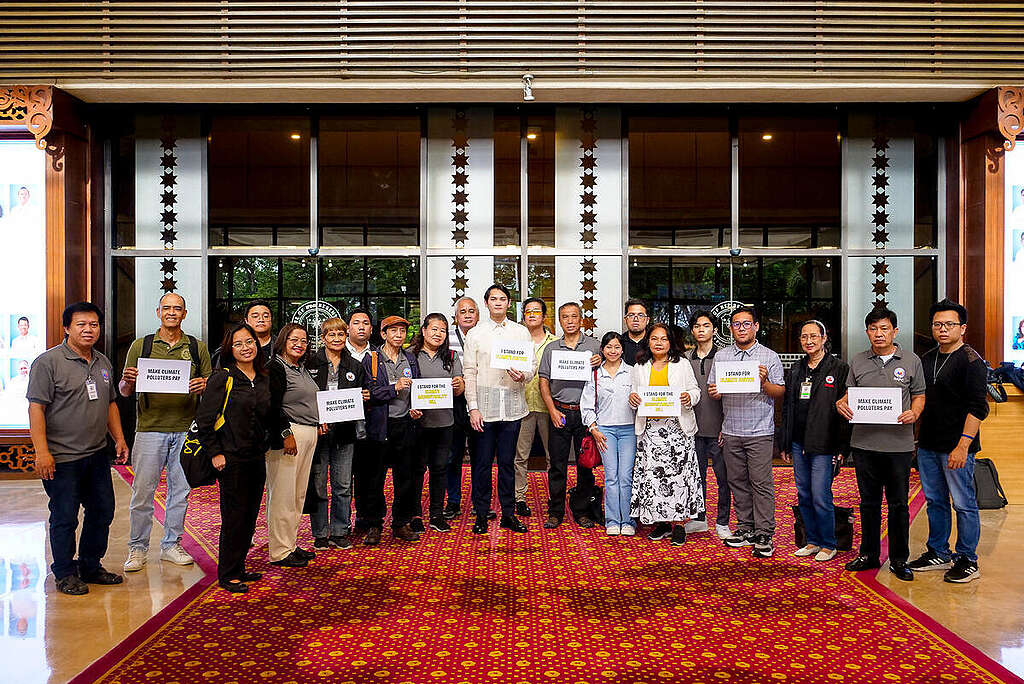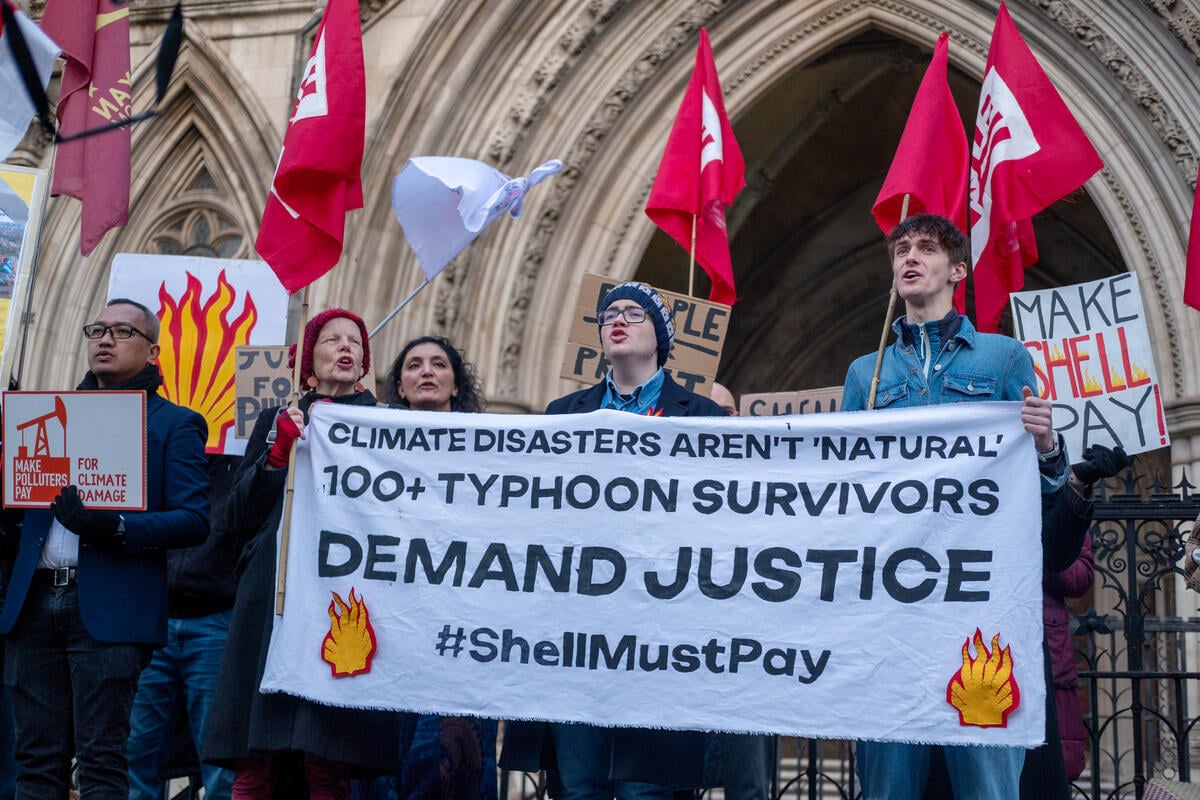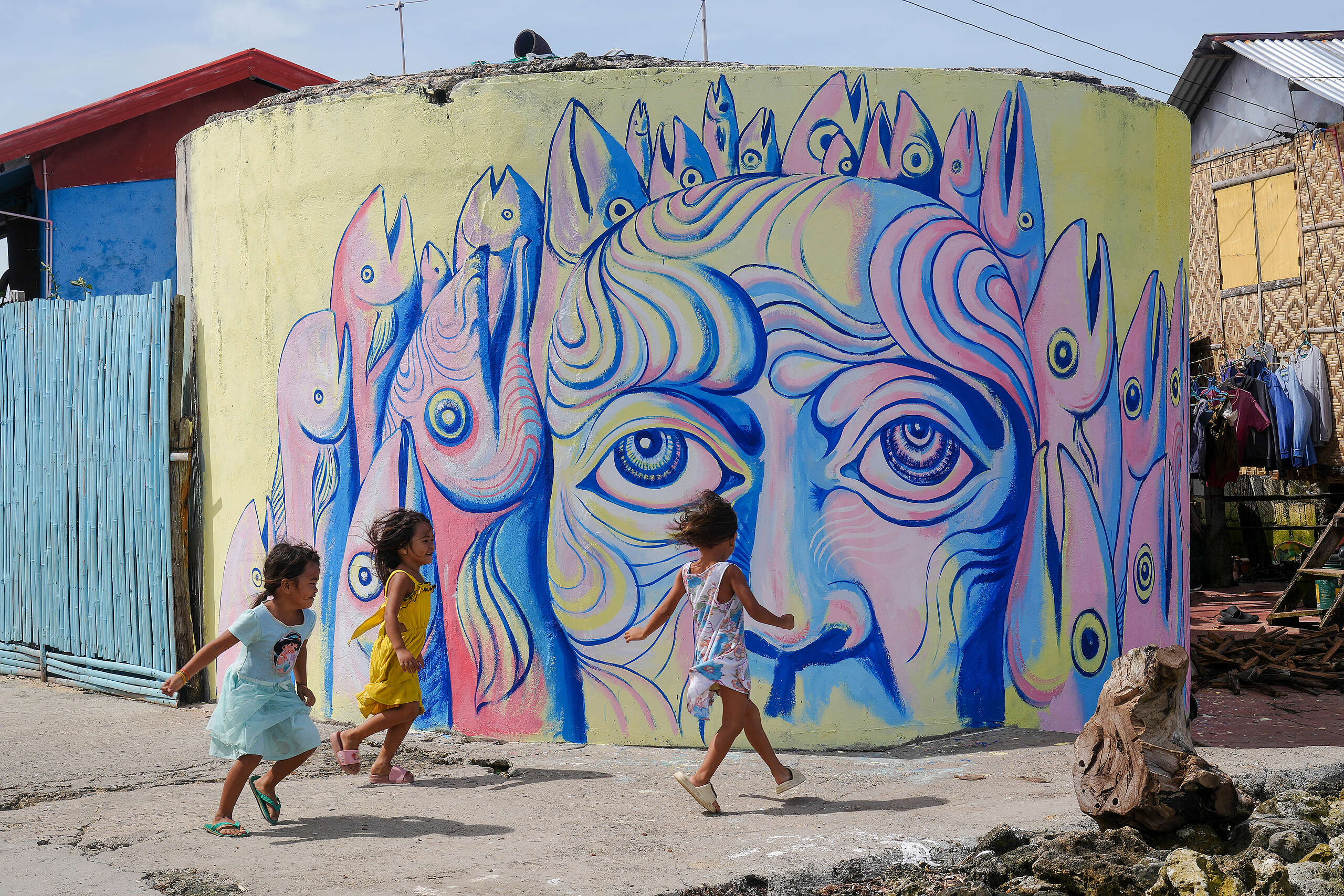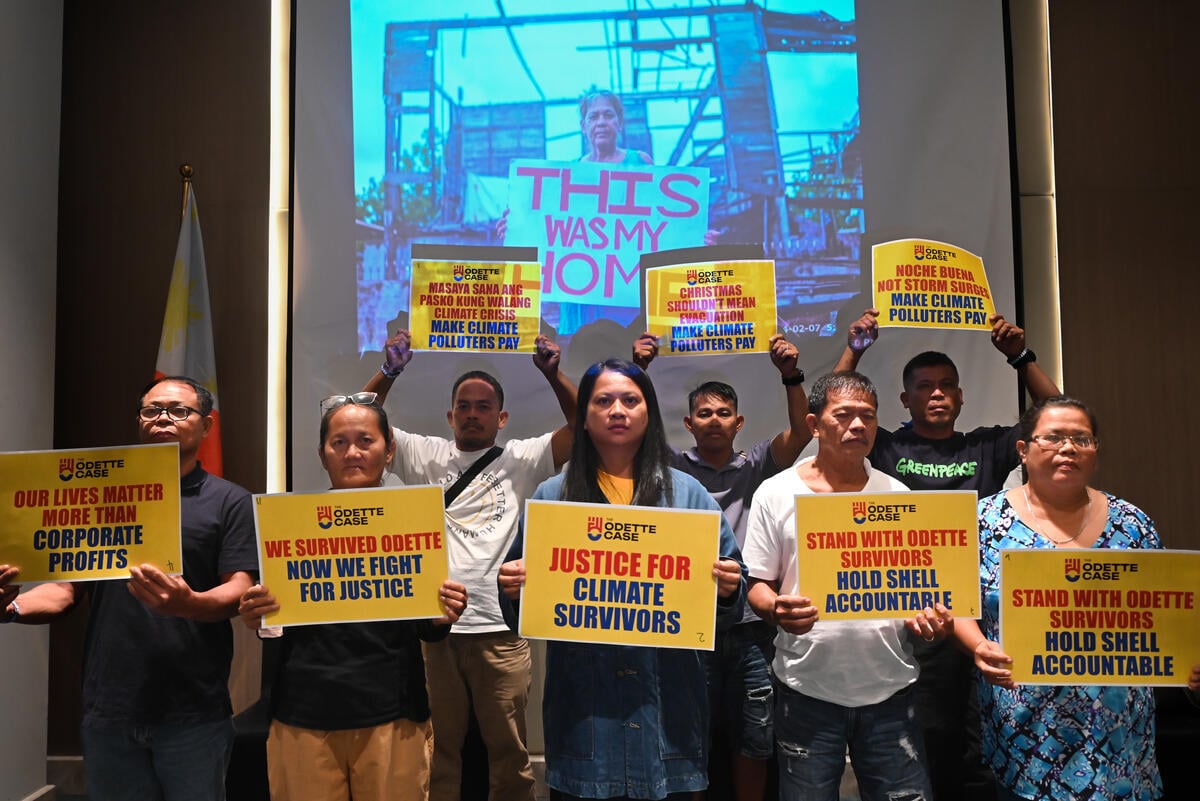Quezon City — Amid the controversial investigations into flood control projects and the ousting of the Senate President, six lawmakers refiled on Monday crucial climate accountability legislation which seeks to change the prevailing business practices of major climate-polluting companies, and require them to compensate communities for losses and damages related to climate change.
The Climate Accountability (CLIMA) Act, or House Bill 4420, was first filed in November 2023 and was approved by the House Committee on Climate Change in the 19th Congress. It was refiled in the 20th Congress by Reps. Anna Tuazon, Jose Manuel Alba, Javier Benitez, Percival Vilar Cendaña, Kaka Bag-ao, and House Committee on Climate Change Chair Aniela Tolentino.1 CLIMA is the first proposed legislation of its kind in the Global South.
“Now that the bill is filed, Congress must treat the CLIMA Bill as a priority. Once passed, this law can deliver climate justice for communities, as well as change corporate behavior so that businesses align with the goals of the Paris Agreement,” said Virginia Benosa-Llorin, senior climate campaigner for Greenpeace Philippines.” The leadership of the 20th Congress should show that this Congress has what it takes to hold polluters accountable for the damage they have caused, compensate communities for their climate-related losses and damages, and uphold the rights of Filipinos to thrive.”

Rep. Benitez, who delivered a privilege speech before Congress prior to the bill’s filing, drew links between corruption in flood-control projects and the broader climate crisis, calling on the government to take it further and go after the oil and gas giants.
“Greed in all forms is our enemy,” he said. “It is our duty to fight it. It is high time we ensure that those who have profited from the destruction of our climate are held accountable. And as legislators, I urge all of you to support the passage of the Climate Accountability Act or the CLIMA Act.”
The International Court of Justice released an advisory opinion2 in July on the obligations of states with respect to climate change that can pave the way for Filipino communities to seek reparations from the world’s biggest climate polluters. The World Court’s decision obligates states to regulate businesses on the harm caused by their emissions regardless of where the harm takes place. In passing the Climate Accountability Bill, Congress would align the Philippines with the World Court’s ruling, while setting an example for other nations.
“Across the world, climate litigation is gaining momentum. International negotiations secure voluntary commitments from world leaders, but climate accountability will force carbon-intensive industries to do their share to curb their emissions. CLIMA also ushers in a robust due diligence framework, which gives companies concrete steps to address the climate crisis,” said Atty Mai Taqueban, Executive Director of the Legal Rights And Natural Resources Center (LRC).
For years, communities have been demanding justice as they face multiple disasters supercharged by climate change. According to Ryan De Vera, a community leader from Brgy. Tumana, Marikina—a city that has been under constant threat of dangerous floods for decades—a law that holds corporations accountable is long overdue.
“Filipinos have little to do with causing climate change, however, we are the ones suffering the most,” Ryan said. “We know that it is the global north that has been polluting the climate for centuries, these rich nations and the giant oil corporations they protect.”
Grassroots and civil society groups, as well as the National Anti-Poverty Commission (NAPC)-Victims of Disasters and Calamities Sectoral Council (VDC-SC) and the NCR Regional Basic Sectors Coordinating Council (RBSCC) have likewise thrown their support behind the bill.
“Vulnerable sectors will be hit the hardest by the climate crisis,” said Ose Aquino, NAPC VDC Council Member for NCR. “Climate change exposures compounded by human-induced risks threaten the lives and livelihoods of poor communities who often live in harm’s way. From Yolanda to Odette, it has been the poorest Filipinos who have been affected. A mechanism where the basic sectors can immediately access rights to dignified poverty-reduction funds will make a world of difference.”
Notes to the Editor:
[1] Anna Tuazon represents 3rd District, Leyte; Jose Manuel Alba represents 1st District, Bukidnon; Javi Benitez represents 3rd District, Negros Occidental; Perci Cendaña is a representative for Akbayan Partylist; Arlene “Kaka” Bag-ao represents the lone district of Dinagat Islands; and Aniela Tolentino represents 8th District, Cavite.
[2] World’s highest court delivers historic protections for climate-impacted communities
Link to Photos:
https://media.greenpeace.org/shoot/27MZIFJROYA7I
For requests for interviews and other information, please contact:
James Relativo, Communications Campaigner
Greenpeace Southeast Asia – Philippines
[email protected] | +63919 069 3424 (Viber & WhatsApp)



